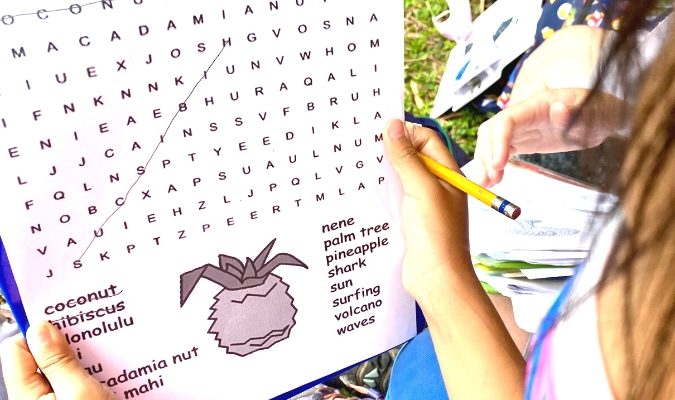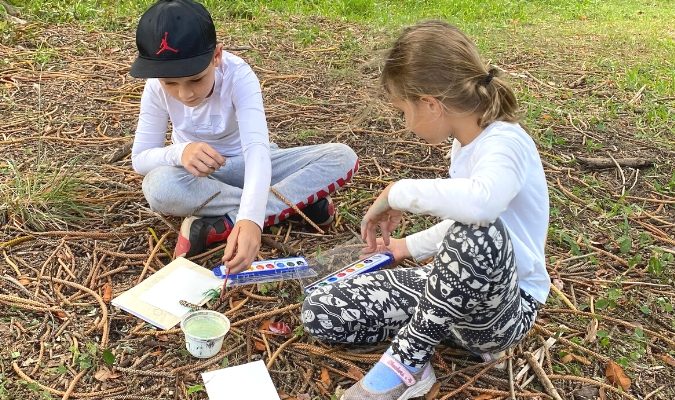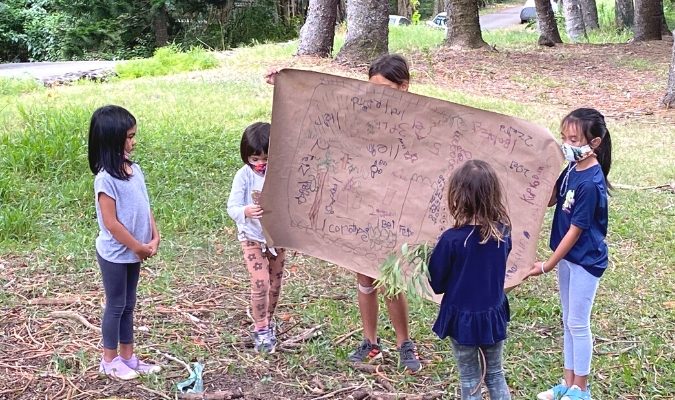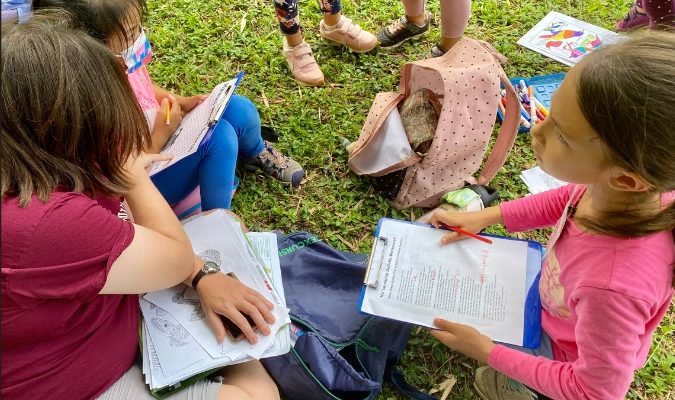O‘ahu Environmental Science Series
O‘ahu Homeschool Science Series
2131 Makiki Heights Drive, HNL | 808.955.0100 x126 | homeschool@hawaiinaturecenter.og
Hawai‘i Nature Center offers an on-campus science series with each class that build upon each experiential lesson. Created to bring together homeschool students, ages 6 to 11, the weekly 6-hour sessions on Wednesdays are live, in-person and teacher-led. It includes learning in the Makiki rainforest as well as field trips. Incorporating State of Hawai‘i Next Generation Science Standards, the curriculum explores a broad range of topics led by environmental educators. Topics include: animal lifecycles, freshwater ecosystems, food webs, sound, electricity, colors in nature, invasive species, volcanism and more.
View & Download the 2023 Course Outline
View & Download the 2024 Course Outline
Spring 2024 O‘ahu Homeschool Science Series | For Ages 6 to 11
Registration is closed.
January 17 – May 8, 2024 | Weekly on Wednesdays from 8:30 am (drop-off as early as 8:15 am) to 2:30 pm
Full Semester: $1,375 (all 16 weekly classes) | Individual weekly classes are not available for purchase
No class will be held on March 20th due to Nature Adventure Camp.
If sold out, please contact homeschool@HawaiiNatureCenter.org to be wait-listed for the series. Include the number of children you wish to enroll and best contact number.
Registration is closed.
Spring 2024 Lessons Overview
January 17 – May 8, 2024. No classes will be held on March 20 due to Nature Adventure Camp.
Gear Up & Get Ready
- Eat a hearty breakfast.
- Wear clothes and closed-toe (hiking or athletic) shoes that can get wet and dirty.
- Put on mosquito repellent and sunscreen at home.
- Leave anything expensive, valuable, or fragile at home.
What to Pack Daily
- Small backpack
- Water bottle
- Morning snacks and a big lunch (no refrigeration)
- Extra change of clothes, raincoat/poncho and water shoes
- Sunscreen, hat, and sunglasses
- Swimsuit and towel
- COVID facemasks (optional)
REFUND & CANCELLATION POLICY – SEMESTER If enrollment is canceled 7 days or more prior to the program’s start, you will receive a refund less a $100 cancellation fee per child and associated administrative-processing fees. If enrollment is canceled within 7 days of the program’s start or up to 6 weeks after the program has begun, Hawai`i Nature Center will refund 50% of the program fee per child. HNC memberships purchased during enrollment will not be refunded. There are no refunds after the end of the sixth week of the program. No refunds or makeups for individual classes missed.
THIRD-PARTY REGISTRATION POLICY Hawai`i Nature Center does not accept third-party registration or registration on behalf of other friends or family. The registering child’s parent or guardian must be the individual to complete and submit all registration information. If we determine that a third party has completed your child’s registration, registration will be cancelled and we will refund your tuition. A $50 cancellation fee per child per week and administrative-processing fees will be charged.




